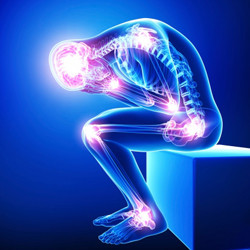Insights into treatment of chronic pain
Pain is physically experienced in terms of its location, quality and intensity, as well as emotionally, in terms of how unpleasant if feels. Chronic pain can also lead to secondary emotions such as stress, which can develop into psychiatric disorders like depression and anxiety. An area of the brain known as the nucleus locus coeruleus (LC) forms part of the central 'stress circuitry' involved in the development of these disorders. As part of the EU-funded 'Role of locus coeruleus in neuropathic pain' (LOCUS COERULEUS-PAIN) project, researchers examined the LC in relation to chronic pain. They used an animal model (rats) to investigate symptoms seen in clinical settings in humans during chronic pain as a result of injury. These include experiencing pain in response to a stimulus that does not normally cause pain, and increased sensitivity to pain. Researchers confirmed chronic pain leads to emotional disorders that outweigh the intrinsic suffering caused by a painful stimulation. The rats were unable to cope with stressful situations, which caused behaviours associated with depression and anxiety. Upon examination of the LC, the project team noted alterations in the way some of its neurons function. Normally, the LC releases the stress hormone noradrenaline in response to pain. With chronic pain, this hormone is released constantly, causing a chemical imbalance that may cause mood disorders. These findings offer biological evidence in support of the use of noradrenaline re-uptake inhibitors (anti-depressants) to treat chronic pain and its associated psychiatric disorders. They also provide insights into the underlying bases of these processes, which will help inform future research into the diagnosis and treatment of chronic pain.
Keywords
Chronic pain, anti-depressant, long-term pain, stress, psychiatric disorder, depression, anxiety, nucleus locus coeruleus, neuropathic, stress hormone, noradrenaline, chemical imbalance

